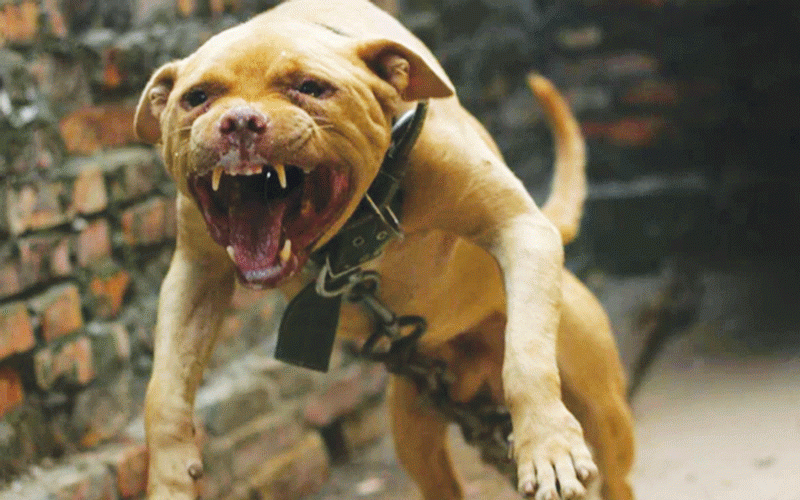
THE rising dog attack cases across Harare are directly linked to a surge in illegal backyard dog breeding, the Zimbabwe National Society for the Prevention of Cruelty to Animals (ZNSPCA) has revealed.
This comes at a time when the city is facing rising dog bite cases, with reports of both fatal and non-fatal attacks.
According to Chrispen Chikadaya, the ZNSPCA is struggling to cope with the escalating problem, citing inadequate municipal enforcement of existing by-laws.
“Because of economic challenges, people are now doing illegal breeding of dogs as a source of making money. So we find that now we have a lot of what we call backyard breeders who are bringing what they call special breeds some are species from South Africa and they breed those and the population of dogs is now increasing,” Chikadaya said.
He said methods used by unlicensed dog trainers were contributing to dog attacks, as those methods are causing the breeds to be aggressive.
“Illegal or unregistered dog trainers are using harsh or cruel methods that are triggering the temperament of the puppies that are being brought or that are being bred illegally, causing them to be aggressive,” Chikadaya said.
He pointed to the city's Dog Licensing and Control By-law as the primary tool for addressing the issue, which outlines limits on the number of dogs per property.
Under these by-laws, properties under 2 000m² are limited to one dog, while properties over 2 000m² can have a maximum of four. Additionally, female dogs are required to be spayed.
- Electoral watchdogs raise red flag over traditional leaders dabbling in politics
- Zim a repressed State: Global watchdog
- Pastors4ED meet
- Come Into My Life singer Joyce Sims dies
Keep Reading
“Dog Licensing and Control By-laws talks about the limit of the number of dogs, no person shall keep more than one dog on a property measuring less than 2 000m², under the municipality by-laws.
“No person shall keep more than four dogs on any other property, so in other words, on a property which is measuring 2 000 square metres, you should keep a maximum of two dogs and on a property which is more than 2 000 square metres, a maximum of four dogs,” he said.
Despite these regulations, enforcement remains a significant challenge.
Chikadaya highlighted that Harare City Council is primarily responsible for enforcing the by-laws but is not adequately fulfilling this role.
“There should be stiffer penalties with regards to illegal dog breeders, it is under the municipal by-laws, for you to breed, you should have a breeder's licence, but most of them or 90% of those breeders, do not have breeder's licences. The municipality is not doing its part about enforcing these by-laws,” he said.
To curb the rising incidents of dog attacks, the ZNSPCA emphasises awareness and education, alongside stricter enforcement of existing by-laws.
Chikadaya said the organisation was initiating meetings and planning joint operations with the municipality to address the pressing issues.
Between January and November 2024, nearly 26 000 dog bites were recorded across the country, an increase from 19 044 cases in 2023.
These are figures of reported cases, the actual number of dog bites, including unreported incidents, is likely higher.
In January, the Health ministry recorded 600 cases of dog bites nationwide within a period of one week, which spoke to lax enforcement of animal control laws and the unchecked ownership of aggressive dog breeds.
Recently, a Boerbull and a Rottweiler bit a schoolchild in Marlborough, leaving him with serious injuries. The boy is receiving treatment at Arundel Hospital.
Chikadaya implored people to be responsible owners by having a wall, gate and a leash.










